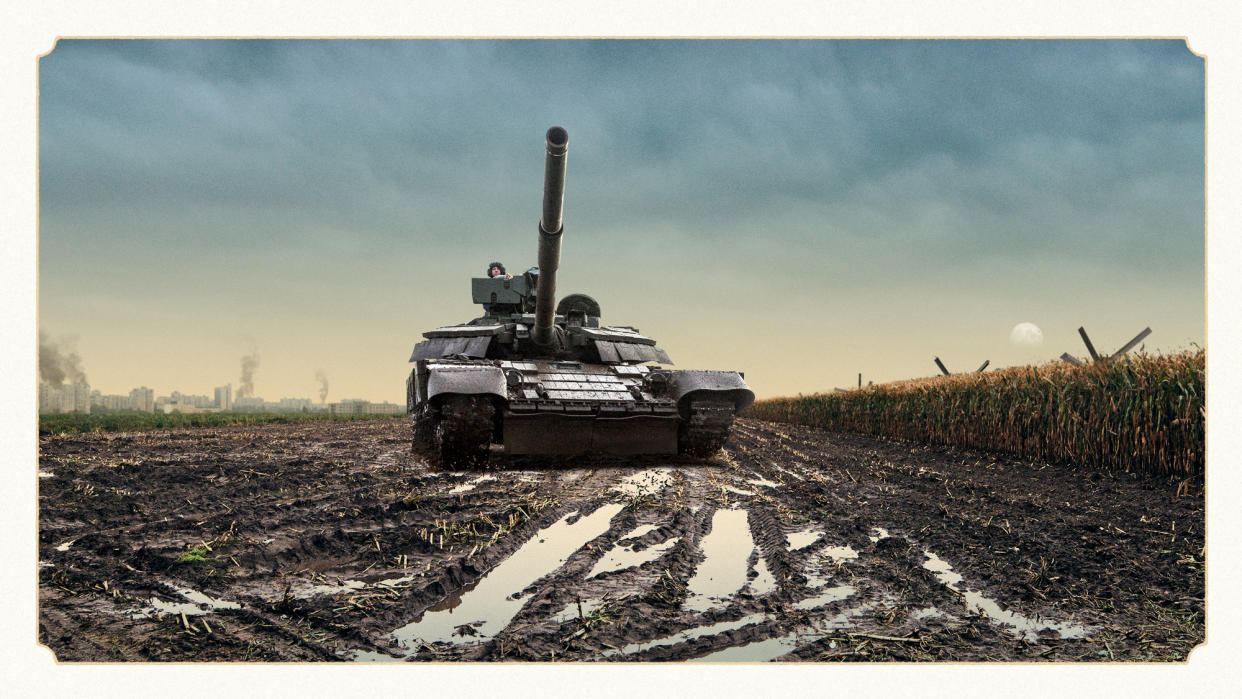Will Russian advance in Kharkiv prove decisive in Ukraine war?

Ukraine and its Western allies are hoping to hold off Russia's advance in the northeast Kharkiv region long enough for vital military aid to arrive, at the start of a decisive few weeks that could shape the outcome of the war.
The push towards Kharkiv, Ukraine's second city with a population of nearly two million, brings back traumatic memories of the early days of the war. Having repelled the initial Russian advance in spring 2022 Ukrainian troops successfully pushed them back over the border in a surprise counter-offensive in the autumn. Now, with Moscow once again on the front foot, there are fears the city could soon be within Russian artillery range.
"As anxiety spreads, some hard questions loom", said The New York Times: "how far will this go? Is it just a momentary setback for the underdog Ukrainians? Or a turning point?"
What did the commentators say?
Ukrainian officials and analysts have "long anticipated" an attack from Russia's Belgorod region over the border into Kharkiv, said the Financial Times, believing it to be "part of an uptick in operations intended to exploit Moscow's advantage in weaponry and manpower before the arrival of US military aid and Ukraine's expanded mobilisation efforts later this summer".
Yet the success of the Russian advance has come as a shock to many used to fighting a war that had ground to a virtual stalemate.
In just a matter of days Russian forces have made "small but significant gains" right along the border, reported BBC defence correspondent Jonathan Beale. Their advances are only a few miles deep but have swallowed up around 62 square miles of Ukrainian territory, a feat that in the more heavily defended east of the country, "it's taken Russia months to achieve". In fact, "it was Ukraine's worst loss of ground to Russia since March 2022", said the Kyiv Post.
The prospect of a "new, large-scale" offensive on Kharkiv has "loomed for months", admitted the Kyiv Independent but "now comes at a time when overstretched Ukrainian forces are steadily losing ground in several hotspots further southeast in Donetsk Oblast".
A Ukrainian defence forces official told the FT last week that the offensive by Russia in the northeast was primarily designed to draw Ukrainian forces away from the eastern Donbas region, which has been the epicentre of fighting in recent months.
Opening a new front in the north will undoubtedly stretch Ukraine's already limited resources, agreed Beale, but the Kharkiv offensive also "highlights problems Ukraine itself has been too slow to address – mobilising enough troops and building adequate defence lines".
Ukrainian officials have denied accusations of ill-preparedness but the Russian advance has put Ukraine in a "very dangerous spot", said The New York Times. Ukrainian troops have been complaining for months about severe shortages of ammunition and Ukrainian soldiers are overstretched and exhausted.
More than two years of trying to fight a country with three times the population to draw from has left Ukraine so "depleted and desperate for fresh troops that its lawmakers have voted to mobilise convicts," said the paper, a "controversial practice that Ukraine had ridiculed Russia for using in the first half of the war".
A new law, coming into effect this week gives greater powers to enlistment officers and will make life harder for draft dodgers, but it is still expected to take months to have an effect on the number of battle-ready troops ready to be deployed to the front.
What next?
For now, the Washington Post reported that US officials are watching the Russian push with "concern" but "do not yet believe that the Ukrainians are on the verge of a significant territorial loss".
American officials told the paper that Russia's decision to strike now was "probably motivated by the knowledge that Ukraine is rapidly re-arming, thanks to the funding recently approved by Congress after a delay of more than six months – meaning Kyiv will be appreciably stronger within weeks".
Yet there are fears the delay in Western aid has opened a narrow window of opportunity for Vladimir Putin.
The signs are that this surge marks the start of a "decisive battle that will be critical to the outcome of the war", said Politico.
"At stake is not just control of one of Ukraine's major population centres but potentially the country's capacity to keep fighting: if Kharkiv falls, Western resolve may soon follow."

